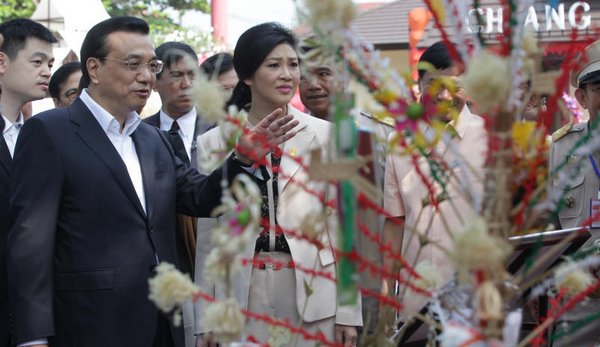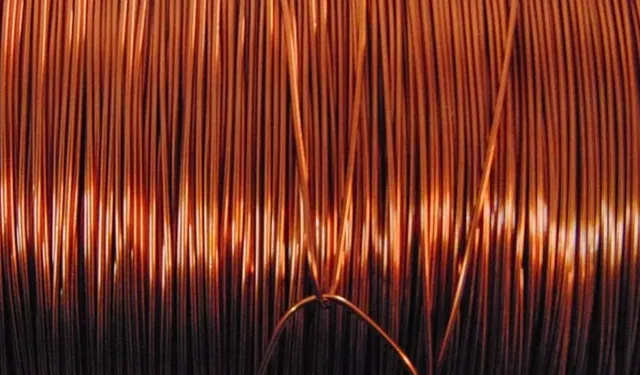China has agreed to increase its annual purchase of Thai rice to 1 million tonnes and to also buy 200,000 tonnes of rubber a year from the country, Prime Minister Yingluck Shinawatra said Sunday.
The rice purchase agreement is a major increase on the nations’ previous deal, under which China promised to buy 1 million tonnes of rice from Thailand over a period of five years, Ms Yingluck said.
The prime minister was speaking upon her return to Bangkok, after earlier Sunday leading Chinese Premier Li Keqiang on a visit to Chiang Mai’s One Tambon, One Product (Otop) display and distribution centre in San Kamphaeng district.
Mr Li left Thailand Sunday after his three-day official visit. He travelled on to Vietnam.
 Prime Minister Yingluck Shinawatra guided Chinese Premier Li Keqiang, left, on a visit to the One Tambon, One Product (Otop) distribution centre in San Kamphaeng district of her home province of Chiang Mai on Sunday. (Photo by Thiti Wannamontha)
Prime Minister Yingluck Shinawatra guided Chinese Premier Li Keqiang, left, on a visit to the One Tambon, One Product (Otop) distribution centre in San Kamphaeng district of her home province of Chiang Mai on Sunday. (Photo by Thiti Wannamontha)
Good ties between Thailand and China were the main reason China had agreed to increase the rice import at the Thai government’s request, Ms Yingluck said.
The new agreement would take effect immediately and would not include the volume of rice Chinese companies would buy directly from Thai exporters, she said.
China also agreed to purchase 200,000 tonnes per year of Thai rubber under the agreement, she said.
The possibility of trading more agricultural products was also discussed, and Deputy Prime Minister and Commerce Minister Niwatthamrong Bunsongphaisan would follow upon the matter, Ms Yingluck said.
On reports that former deputy prime minister and finance minister Pridiyathorn Devakula was preparing to disclose information about alleged corruption in the government’s rice-pledging scheme, Ms Yingluck said she was willing to listen to MR Pridiyathorn. The government would respond to MR Pridiyathorn’s points if they are clearly worded and relate to specific acts, she said.
However, if he is simply commenting on the overall rice-pledging programme, it will be difficult to respond, Ms Yingluck said.
Opposition leader Abhisit Vejjajiva, meanwhile, said the government had misled the public by claiming the high-speed train route from Bangkok to Nong Khai would be constructed in only seven years.
The government needed to stop raising false hopes and should instead make clear that its planned 2-trillion-baht infrastructure loan would only cover the costs of the high-speed train route from Bangkok to Nakhon Ratchasima in the seven-year period, Mr Abhisit said. The government also had to admit that such a large amount of borrowing would put the country in debt for at least 50 years, he said.
“The media should investigate the government’s failure to provide accurate information to the public and its misleading propaganda [regarding the high-speed train project],” he said.
Source: Bangkok Post


























